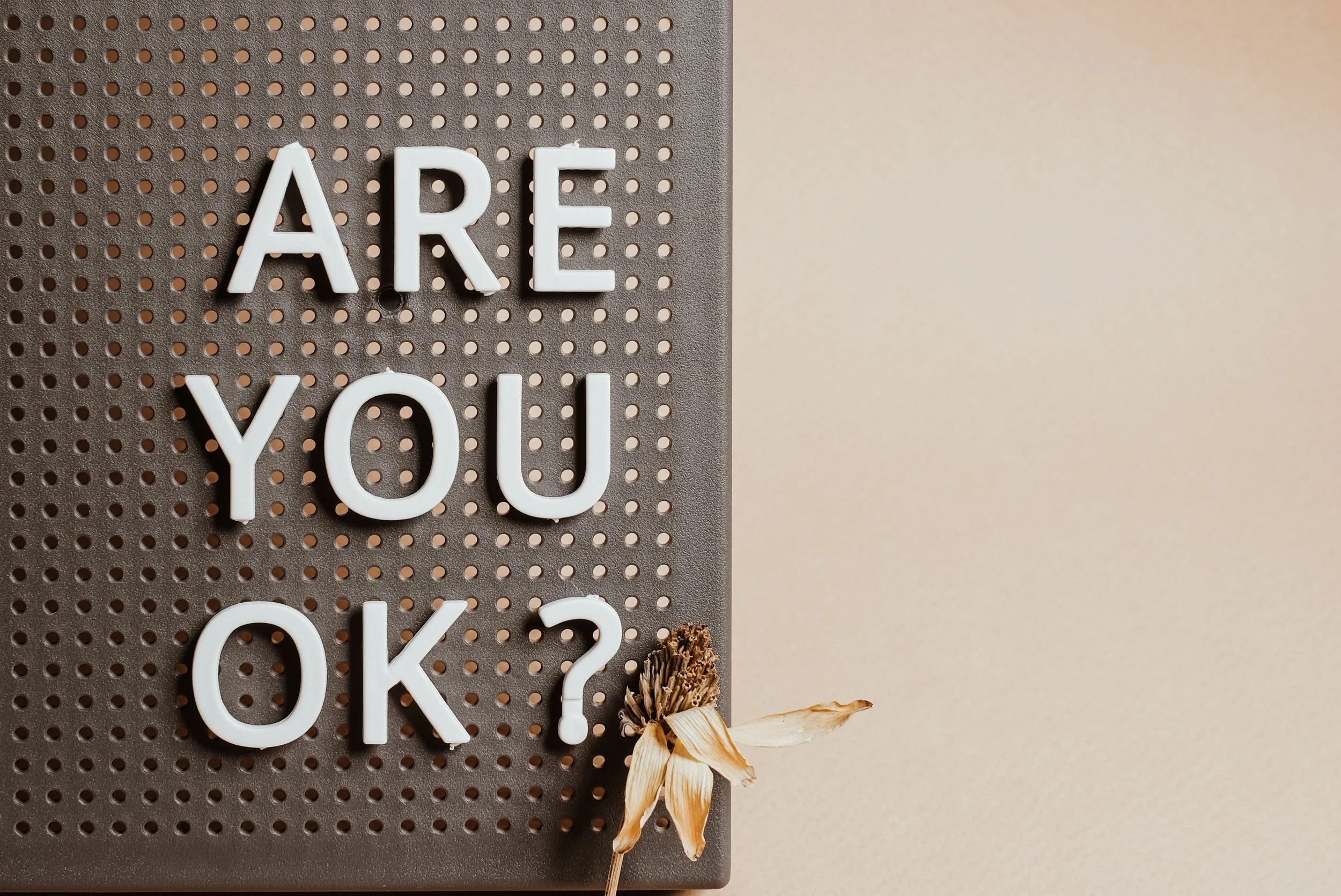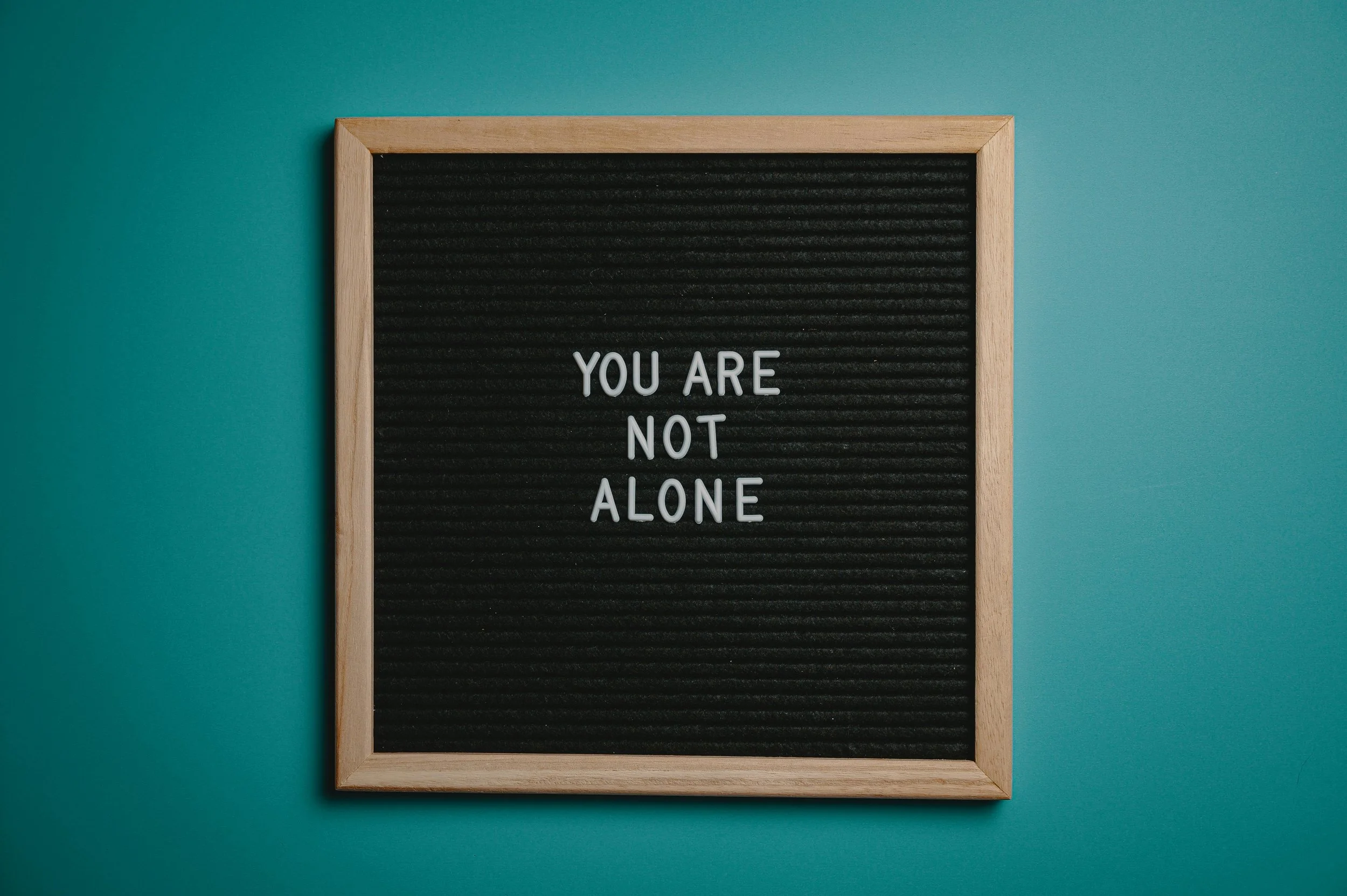Mental Health Matters - Build Supportive Habits
May is Mental Health Awareness Month—a time to pause, reflect, and recognize the fact that mental health is the cornerstone of our overall health. Mental health isn’t limited to a diagnosis or a crisis. It’s about all of us—every day. It’s about how we feel, connect, cope, rest, relate, think, and grow.
And yet, so often we only tend to it when something is wrong. When stress overwhelms us. When burnout creeps in. When anxiety hijacks our focus. But just like our physical health, our mental wellbeing thrives on prevention.
This month, let’s shift the conversation from stigma or symptoms to support, prevention, and wholeness. What does it actually mean to take care of our mental health—and how can we do it intentionally?
What Is Mental Health—Really?
“Mental health is a state of emotional, behavioral, and social well-being. It influences how individuals think, feel, and act. Mental health determines how we handle stress, relate to others, and make choices. It is more than just the absence of mental illness.” — American Psychological Association
This definition highlights something essential: mental health is active, not passive. It’s not just a lack of symptoms—it’s a dynamic process that affects every part of our lives. It shapes our moods, decisions, relationships, and ability to adapt.
It also reminds us that mental health is not something “you either have or don’t”—it exists on a spectrum, and it fluctuates. We all experience highs and lows, and tending to our mental health is just as important as caring for our physical health.
📌 To keep close: Mental health is our foundation. It’s how we feel safe in ourselves, connected to others, and capable of facing life’s ups and downs.
Why Mental Health Prevention Matters
The statistics tell a powerful story:
1 in 2 people in the world will develop a mental health disorder in their lifetime (Harvard Medical School, 2023)
1 in 3 women and 1 in 5 men will experience major depression in their lives (Dattani, 2022)
1 in every 8 people in the world live with a mental disorder (WHO, 2019)
These numbers show that mental health challenges are far more common than we often acknowledge. But here’s the hopeful part: many of these struggles can be prevented or eased with early attention—through small lifestyle shifts and supportive, evidence-based care.
Our brains are adaptable. Neuroplasticity means we can reshape how we respond to stress, challenge, and emotion.
Daily habits matter. Small, consistent actions can positively influence mood, resilience, and long-term mental health outcomes.
Connection, rest, and purpose protect us. These aren’t just “nice to have”—they’re vital for mental well-being.
📌 To keep close: Mental health is responsive. It’s not fixed—it evolves with how we live, what we value, and how we care for ourselves, even when everything feels “fine.”
Mental Health Habits That Make a Difference
1. Prioritize Sleep Like Your Mood Depends on It (Because It Does)
Chronic sleep deprivation is one of the most under-acknowledged threats to emotional regulation and resilience. Lack of sleep affects memory, decision-making, and emotional regulation. Chronic sleep issues are linked to higher risks of anxiety and depression.
🔹 Sleep is your brain’s nightly reset button. Make rest non-negotiable—not just at night, but through moments of pause during your day.
💡 Reflection Moment: How do you currently rest—not just sleep, but disconnect and reset during the day?
2. Move Your Body to Support Your Mind
Exercise isn’t just good for your body, it’s one of the most effective natural mood boosters. It changes your brain chemistry—it increases serotonin and endorphins, reduces stress hormones, and improves cognitive function.
🔹 Consistency matters more than intensity. Even gentle movement—like walking or stretching—helps discharge stress.
💡 Reflection Moment: What form of movement feels good for you—not to control your body, but to connect to it?
3. Emotional Awareness Matters: Check In with Yourself
We brush our teeth daily, but how often do we check in with our emotions? Bottling up or bypassing feelings can lead to chronic stress, burnout, or physical symptoms.
🔹Emotions don’t need fixing, just witnessing. Name what you feel. Write it down. Talk about it.
💡 Reflection Moment: What emotions have you been ignoring lately? What might they be trying to tell you?
4. Boundaries Protect Your Energy
Chronic stress is one of the leading drivers of mental health problems—yet much of it is avoidable when we learn to set boundaries. Saying "no" is an act of deep self-respect.
🔹 You don’t need to justify your limits to make them valid. Start noticing where you feel drained, resentful, or overwhelmed—these are boundary cues.
💡 Reflection Moment: Where in your life do you need to create more space or say no more clearly?
5. The Power of Connection and Supportive Relationships
Connection is a core human need. Supportive relationships buffer stress, promote resilience, and protect against loneliness—a major predictor of poor mental and physical health.
Human nervous systems are wired for co-regulation—we calm down faster when we feel seen and safe with others. Strong social support is one of the best predictors of mental wellbeing—and even longevity.
🔹 Don't underestimate the power of a single meaningful conversation. Reach out to someone you trust this week. Make space for real conversation. Listen. Share. Be seen—and see others.
💡 Reflection Moment: Who are your “anchor” people—those you can be fully yourself with?
A Final Thought 💬
Mental health is a journey—not a fixed state. This May, let’s make room for proactive care, compassionate self-talk, and mindful habits that support our full humanity. Let’s also keep in mind that we are not meant to do life alone.
Let this be your reminder: You don’t need to be “in crisis” to deserve support. You just need to be human.
Let’s Talk
Are you looking for more mental health habits to integrate into your daily life? Is your mental health struggling, and could you use some support right now? Get in touch—we can discuss your needs and goals and find ways to personalize this process so you can get the most out of it.



